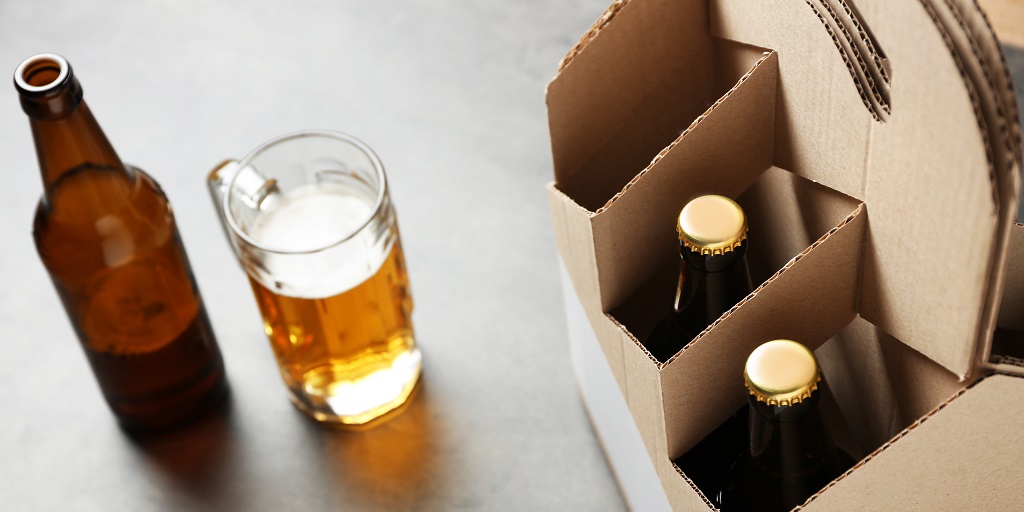
Guidance for breweries on online sales

With brewers pivoting to new business models to survive the current crisis, many are entering the direct retail market for the first time.
Recent Commonwealth Bank credit and debit card figures shows a significant increase in alcohol purchasing over the last month compared to the same period last year.
In the face of consumption concerns WA last week announced temporary restrictions on takeaway alcohol sales last week, with some predicting that nationwide alcohol limits could be on the cards.
Retail Drinks’ today announced restrictions on sales volumes for its members and many brewers may be unaware of the obligations the retail industry has adopted around online sales.
“Industry discussions were already in place about putting voluntary retail limits in place before the WA state government decided to put its own restrictions into effect,” explained Retail Drinks’ CEO Julie Ryan.
“Although we haven’t seen the same extent of panic buying or stock issues in alcohol retail as supermarkets, we have seen customers purchasing more than they normally would. We are doing this initiative as a preemptive measure to ensure we don’t experience any issues and to encourage customers to continue to consume responsibly.
“The limits that the WA state government put in place were done without proper consultation with the packaged drinks industry, and are complex to calculate which means retail staff are spending a lot of time on processing complicated transactions,” she told Brews News.
“Our voluntary limits are simple and clear for retailers to execute and maintain because they have been done in collaboration with the majority of the Australian packaged drinks industry.”
As with advertising and the Alcohol and Beverage Advertising Code, the retail alcohol industry has been self-regulating comes to online sales and Codes of Conduct.
Retailers should continue to operate in accordance with all existing State and Territory liquor regulations and should contact individual regulators or Retail Drinks should they require any clarification.
Retail Drinks launched its Online Alcohol Sale & Delivery Code of Conduct last year to ensure best practice in the industry when it comes to online sales and deliveries.
One of the main aims of the code was to ensure that there are procedures in place to mitigate the risks associated with online alcohol sales and deliveries, to prevent violation of responsible supply of alcohol rules.
Best practice rules include:
- Ban on same-day or express unattended alcohol deliveries are not permitted under any circumstances.
- Attended deliveries are allowed to occur on the same day as order, but are only permitted if the purchaser is an adult over the age of 18 who is not intoxicated and is present to receive the delivery.
- Retailers must ensure that age identification goes beyond manual date of birth entry.
- Anybody accepting or receiving the purchase is required to provide sufficient identification documents upon accepting a delivery if they appear to look under the age of 25.
- Non-same day unattended alcohol deliveries are permitted. However, retailers are required to request specific unattended delivery instructions from a customer at time of purchase, and these instructions must be passed on to any third party couriers.
- Instructions may include specific details as to where the delivery should be left in order to minimise against possible risks such as theft.
“As always, retailers should follow all advice from Government and state licensing regulators, which includes measures of social distancing,” Ryan said.
“For instance, many retailers have rapidly been rolling out a range of new measures to help uphold public and team safety, including contactless delivery and pick up or using floor markings around registers to help customers maintain social distancing.”
“Some retailers are going even further – for example, Retail Drinks has seen measures such as those from Endeavour Drinks who are in the midst of installing protective plexiglass screens at the manned checkouts across Dan Murphy’s and BWS stores across the country. Indeed, many members are also considering the same.”
As part of these adaptations, it has also updated its code to include information on contactless or low contact deliveries.
In the updates, Retail Drinks stipulates that all customers appearing to be under the age of 25 must be requested to provide ID to prove that they are over the age of 18, and said that delivery agents should view the provided ID within social distancing guidelines.
Brews News reached out to the Independent Brewers Association for guidance on how its members should approach their approach to retail and online sales.
“The IBA supports the restrictions introduced by Government as sensible and has updated advice to all members doing direct retail that these restrictions must be strictly adhered to,” said the IBA Chair Peter Philip.
The association advised it will be updating its Resource Page for members with information on grants, home deliveries and any other information they might useful right now. The IBA board also discussed this topic in their recent webinar.
Move to online sales
COVID-19 has “dramatically” impacted the way we spend, according to the Global Economic & Markets Research team at CommBank.
The team analysed purchases on its credit and debit cards, and found that in the week to 20th March, as you may expect, spending on food, alcohol and health surged, compared to the same week in 2019.
There was a sharp decline in spending on clothing and footwear, recreation, transport, reversing trends in recent years that have seen spending on services increase faster than on goods.
It found that spending on alcohol overall had gone up 20.4 per cent, with a rise of 36.8 per cent in alcohol sold at bottleshops. This was offset by a 6 per cent decline in alcohol services, as in alcohol sold at pubs, hotels and other venues.
However these results came before the federal government ban on venues, as well as gatherings over two people, so inevitably we will see an even stronger outlook in these trends in the coming weeks.



